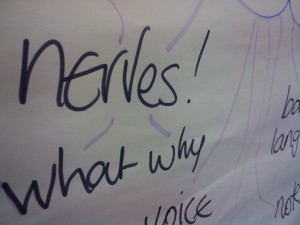You can’t have missed it – the staccato sprinkling of the word ‘like’ in conversations overheard in cafes, trains and offices everywhere. We look at the rise and rise of ‘like…’
You can’t have missed it – the staccato sprinkling of the word ‘like’ in conversations overheard in cafes, trains and offices everywhere.
As usual, it’s a speaking fashion that seems to have emerged and is certainly most used among teenage girls.
“And I was like” has developed its own contraction already, to something more akin to “an’yse’lye’,” all run in together as one word with a glottal stop at the end of it.
One briefly-seen advert trying to seem spontaneous, colloquial and natural featured the excruciating spectacle of an actress carefully over-enunciating the phrase “and I was like” as if it were a line of Shakespeare. It didn’t last long.
So what does ‘like’ mean? It seems to have several main functions at the moment:
To replace “and I said” “and she said – “And I was like ‘no way’ and she was like ‘way’ and I was like ‘whatever’ …”
To replace “and my attitude was” “and her attitude was” – “And I was like totally in her face and she was like giving it that … ”
Just before a verb or a concept, as though the speaker needs a bit of a leg up before they can articulate the next phrase – “he never like had any intention” and “my friend’s like best friends with her sister … ”
As a meaningless interjection, a linguistic tic that the speaker does not even realise they are doing, to fill a gap until the next word comes along – a 21st Century ‘um.’
So, here’s the recipe:
Talk very quickly about nothing in particular as though it’s the end of the world or the most exciting thing that will ever happen [either will do] …
Sprinkle in a liberal helping of ‘like’ …
For real authenticity, add the upwardly mobile moo of Australian Question intonation …
Now grate in some Dalek vocal fry …
and this is what you get …
“And like I went out last night? with like Kelly and Shanaaaaaae and like totally got like waaaaasted and omigod her mother was like you are like grounded for evaaaaah?
Like any other language fashion, ‘like’ is an acquired and displayed badge of belonging, and just like vocal fry and AQI … there’ll be another one along in a minute.
The question is … do you do it? Have they started counting your ‘likes’ – or worse, doing a surreptitious five-bar gate on a napkin?
If you do it at work, it will damage your professional image. If you do it in a job interview, it may mean the difference between getting the job and putting the recruiter off. And if you do it as a public speaker, you must expect the five-bar gate to be the main source of hilarity at the coffee break.
Are you doing it? Record yourself speaking. If the answer is yes … it’s time to strike the like.
